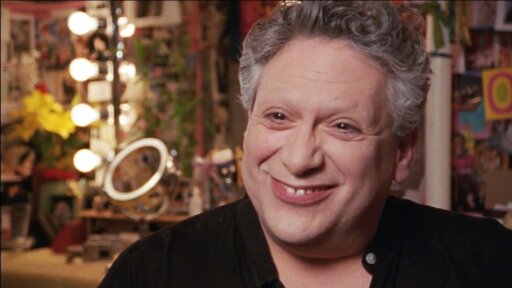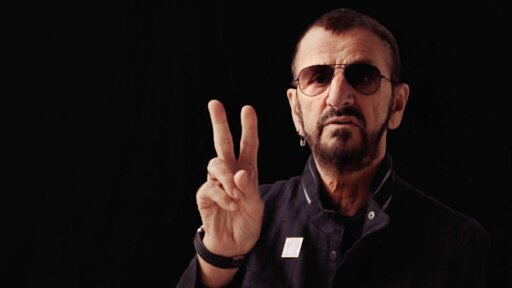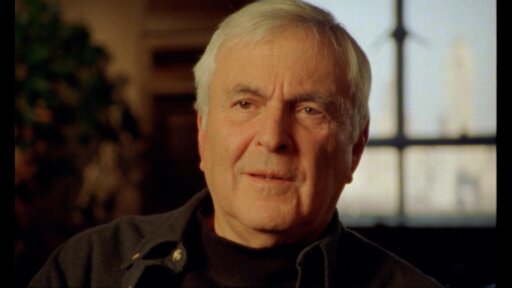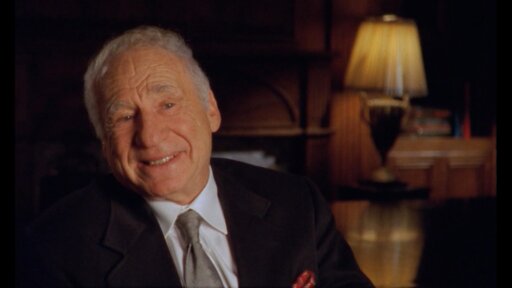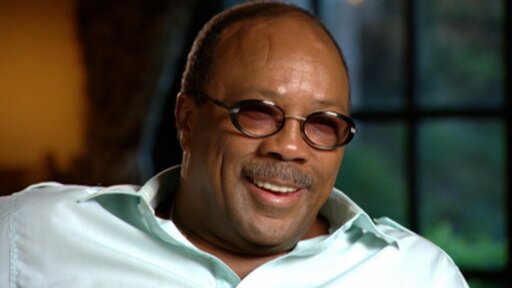TRANSCRIPT
- When I think of the American dream, I think of exclusivity, to be quite honest with you.
I think that dream, just like the foundation of America, was only held out to a few and it was only meant for a few.
It was meant, for the most part, for those who had come from Europe, who were land owners, who were part of the aristocracy, who had held to them the promise that they could indeed prosper in this country.
The constitution was not intended for people who were landless, for people who were not male, for people who were not white.
This country was just simply not founded that way.
We had to have amendments in order to make this democracy more and more inclusive.
And so with the American dream, as well, it was held out to those who were white, to those who were male, for the most part, and others had to fight for inclusion in it.
- [Interviewer] When somebody says American dream, what are the pictures that pop into the head?
- The ability to be able to live as a full citizen.
When I was coming of age, the dreams that were held out for me to attain were ones of self-actualization.
They were not so much succeeding within the society as to succeed within one's own skin and to try to attain a sense of your own full humanity, because that was the fight in those years.
You were constantly being degraded wherever you looked.
There were stereotypes about you, about your culture, about your social class, and so my parents always reinforced in my sisters and I that you have to set your own standards of excellence.
You have to strive to become a full person.
It did not reach beyond the self into, let's say, then attaining success within society because it was a given, if you can just first maintain your own humanity, reify your own personal worth, you then flow into the system as an entity.
- [Interviewer] So let me ask you, can you finish this sentence?
'The picture I have of the American dream is...' Do you have a snapshot of that?
- The picture I have of the American dream is one of an illusion. (scoffs) It's one of an illusion that's been set out for us and that we have to shape in our own image.
It is indeed a dream.
A dream is something that's ethereal, a dream is something that's not really quite there, and when I think of the American dream, that's what I think of, something that is manufactured, something that is ethereal, something that's not quite there.
- [Interviewer] Let's move on, if we can, to the books we wanna talk about, and let's start with Nella Larsen's 'Passing.'
Let's just start at the basic level of the book.
Is a Gatsby-like reinvention of self, in your mind, possible for African Americans?
- I have seen it happen.
There are some African Americans who are, today, able to, quote-unquote, 'pass,' and they're able to pass, not so much with skin color, but to pass into the larger society by simply sublimating those things which are considered, quote-unquote, too ethnic or too political, so therefore, they aspire to the values of the broader society.
They try very hard not to stand out, as far as the way they look physically, the way they might dress, the language they might speak, the foods they might eat, the values they might hold, and they are acceptable, the Colin Powells of America.
It was such a phenomenon to me that Colin Powell was so deeply loved by the American media and actually touted as becoming president, and when you looked at the man, you understood.
What could be more American than someone who was willing to die for this country, than a man who was a General, than a man who was that conservative, a man who was also fair skinned, which was extremely important, and who had Republican leanings?
- [Interviewer] Why do you think Larsen starts 'Passing' with that sweltering summer heat?
- Because that symbolizes the oppressiveness of the society in which the Irenes of the world lived in.
Irene was a middle-class Black who was talking of sending her children to Europe, and they they took summer vacations out in Martha's Vineyard and this sort of thing, and yet and still, what she was oppressed by was the color of her skin, so she had to worry about, when she was taking an iced tea at the top of this very fancy hotel, whether or not she would be embarrassed and shuffled out.
- [Interviewer] Okay, let's, if I can, 'cause one of the things I wanna do is always help us with the narrative.
How does Irene escape the heat?
- Irene passes, that's right.
Irene, she doesn't announce that she is white, but she doesn't deny it, either.
So she just simply goes up, she's fair enough to pass as white, and she sits there and she just simply pretends, and that's what Clare brought out to her later in the book.
You have, when it has been convenient for you, you have indeed passed.
I just did it for higher stakes.
- [Interviewer] So they're on the roof of the Drayton, the Drake Hotel, and Irene sees this woman looking at her.
- And she's afraid that, maybe, there's a white woman who has recognized that she is Black and that she's about to be accosted.
And then you have this whole wave of emotion that flashes through her.
First, there's anger, then embarrassment, and then she steels herself for what she thinks is an impending confrontation, and that shows you it's quite a way to live, is it not?
Irene is not able to just move as herself, as a human being, throughout that society.
She has to always be second-guessing herself.
- [Interviewer] Two Negro women meeting at the top of it, being who they are, they're both pretending, I guess, on the top of that hotel.
- Oh, yeah, well, definitely.
Well, with Clare Kendry, her entire life has become a lie.
She is living as a white woman.
She has married a white man who is a racist, so every day of her life, she must live a lie, and I think, as far as an artistic choice, that was an interesting one that Larsen made because she could have married a man who was a libertarian.
Could have been quite possible, but she had her marry a racist, which is to show how oppressive it must be for that woman to hear these things about herself each day of her life from this man who hated Black people.
- [Interviewer] Yeah, I wanna get to that in a second because I actually even wanna read a little bit of what Larsen wrote about John Bellew, but Clare at this moment tells Irene, we don't know as a reader yet about Bellew's racism.
- No.
- [Interviewer] But in the moment we're getting to in the book, Clare says to Irene, 'Well, that's what everyone wants, just a little more money.'
'All things considered, it's even worth the price.'
What's Larsen trying to say here in that moment about money and passing and access?
- Basically that, in order to attain Clare's concept of the American dream, which is the attaining of materialism, that she is willing to make any sacrifice, to go beyond the sacrifices that are even laid out in the mandate, which are hard work and thrift.
She's actually willing to sacrifice her own psyche in order to attain material things, in order to attain a certain amount of psychological freedom, because that's all she's getting is, basically, psychological freedom because she came from a milieu where she could have married a Black doctor or a Black lawyer.
Those were the people that she moved among.
Irene's husband was wealthy.
He could have put her up well, as far as material things, but I think Clare Kendry was after something else, and I've often wondered about that with this book.
It must have been that she wanted the psychological freedom to move within American society and to be considered a human being, because even the wealthiest Black was not considered the equal of the poorest white.
- [Interviewer] You don't see her as psychologically tormented?
- I see her as being drawn back to her own roots, definitely, yeah.
- [Interviewer] Why?
- Yeah, because one must be what one is.
At some point, you want to just breathe free and to truly be yourself.
It's the same thing with people who are homosexual and who are in the closet.
There's a point when you just want to simply not have to guard every word, guard every gesture, but to simply be oneself, and that's what Clare Kendry gives up.
So in a sense, she is in a psychological cage, but then there are other times in her life when she can be in the rooftop of fancy hotels and not have to worry, when she can go into stores, but they don't really do much.
When you think about it, it's a very prescribed world that these women move in.
It's a world of shopping and of tea parties and of cocktail parties and of second homes, so that's why I kept saying to myself, what is it that she wanted that she couldn't have attained if she stayed in the Black bourgeoisie?
- [Interviewer] And that is that freedom to be white?
- I think, yeah, that freedom once you move in the outside society, yeah.
- [Interviewer] Can I ask you, we're also thinking of 'The Great Gatsby.'
Do you see any similarity between Clare going back and Gatsby going back?
I mean, here, they're both characters that reinvent themselves, and what do they do?
They go home. - They go home, yeah, because that's where you get your basic- - [Interviewer] But talk to me about Clare and Gatsby.
- Your basic freedom from, except that Gatsby doesn't quite go home because Gatsby reinvented himself from the time he was 12 years old when he left the Midwest.
He had been the child of farmers, I believe, failed farmers, and he left, but he goes back to that moment in his life when he was a young Army officer and he could have married Daisy Buchanan, so he returns, I think, to her, in that sense.
He doesn't go all the way back.
What Clare Kendry does is that she literally wants to go back into the Black world of the Black bourgeoisie and to just move among these people and be there, although both with Gatsby and with Clare, it's their ties to their past that lead them to destruction because each of them, because of the mate of someone from their past.
For example, with Clare, it's because of Irene she begins to have the affair with Irene's husband, and that ultimately leads to her demise because Irene undermines her and she doesn't let her know that she's met Clare's husband and that he knows now that Irene is Black, so therefore, Clare must be Black.
She doesn't let her know this, so that leads to a very explosive confrontation.
With Gatsby, he has the affair with Daisy, which leads to Daisy's husband letting the other man know, it's so bizarre, leading him to believe that, perhaps, it was Gatsby who'd run over his wife, and that leads to Gatsby's death, but the particulars aren't important.
What I think both authors are showing is that these characters being drawn back to their past ultimately leads to their destruction.
If they had stayed there in the first place, perhaps that's where true happiness would've lain.
So there's a cautionary tale, I think, in both of those books.
- [Interviewer] How is Clare's world then undermined by Irene?
- Well, what Irene does, and this is a sin of omission, she meets Clare's husband in the street just by happenstance, and Irene is walking arm-in-arm with another one of her friends, who is obviously a Black woman, she looks Black, and the husband sees the two of them together.
He makes the connection.
'Oh, my God, the woman that was in my house with my wife is a Black woman,' and that makes him suspicious.
Now Irene could have warned Clare that her husband had seen them and he might be suspicious, but she remains silent, and so what he does is that he secretly begins to follow his wife and he finds out, indeed, she's hanging around with Black people and so she must be Black.
I think Larsen actually says that there was this strange, enigmatic smile on Clare's face, this unreadable smile.
Clare Kendry could have, in that moment, been glad for his pain, because look at all the pain that he had unwittingly committed upon her all of those years when she had to take those barbs, and that was, perhaps, just for that one sweet moment, revenge, yeah.
- [Interviewer] That's great.
When I read it, I thought to myself, the worst thing that could have happened happened, and it wasn't so bad, almost.
- Yeah.
- [Interviewer] So what happens now?
There's this phenomenal ambiguity because Clare doesn't walk away from the novel unscathed.
- She ends up dead. (laughs) (interviewer laughs) I mean, for some odd reason, she flips out of that window, and we are never told by Larsen whether or not Irene, who was very close to her, took that moment to push her, because Irene sees in this moment of the dissolution of Clare's marriage that Clare will be free, and she says, 'I cannot have her free,' 'cause were she free, then there's the danger that she might run off with her husband.
And so suddenly Clare is out the window, and we don't know how she got out that window.
If Irene did indeed kill, what did she kill for?
She killed for stability.
She killed for the continuance of her own material wellbeing.
She killed for that elusive American dream.
- [Interviewer] Great. - Yeah.
- [Interviewer] I'm gonna ask one last question about this book.
When we selected this book, a lot of people didn't know the novel, and I guess the question I have for you then is do you think the book's now lost its relevance?
- That's a good question.
- [Interviewer] I mean, is it still worth reading?
- Oh, it's definitely worth reading to understand a bit about the history of race relations in this country.
Definitely, it's worth reading.
I think that the concept of passing into white society is more refined now, and one must make the intellectual leap to understand that passing is still possible, but it's no longer so much the color of one's skin as it is what's inside of one's head.
If you're willing to whiten inside of your head, you are fine.

